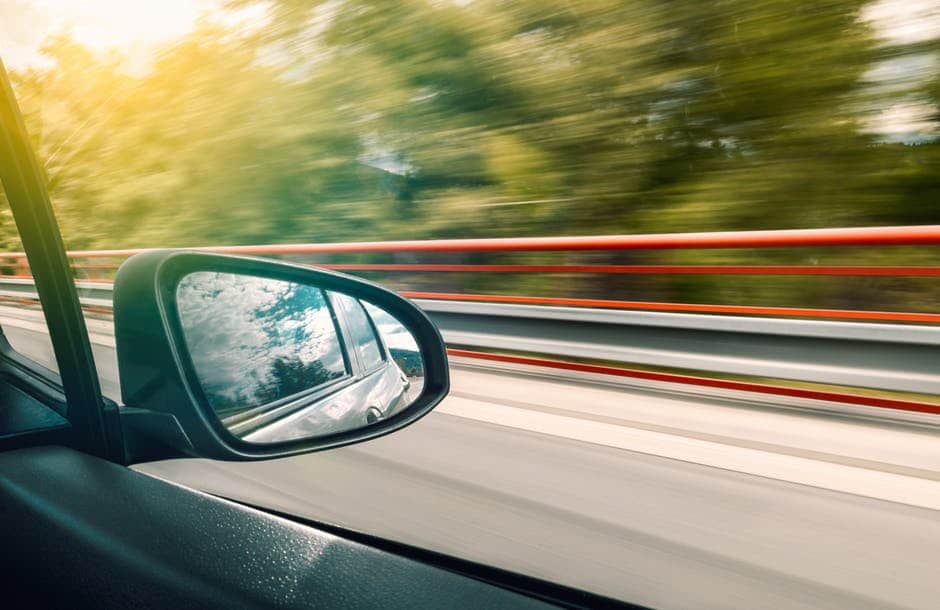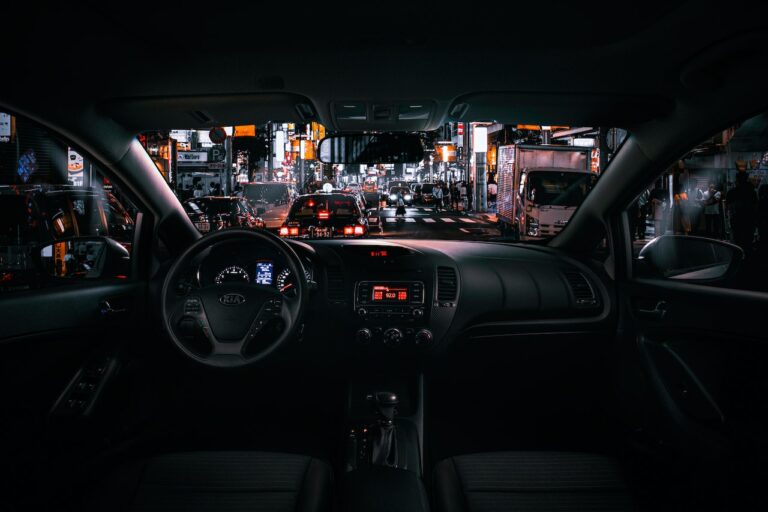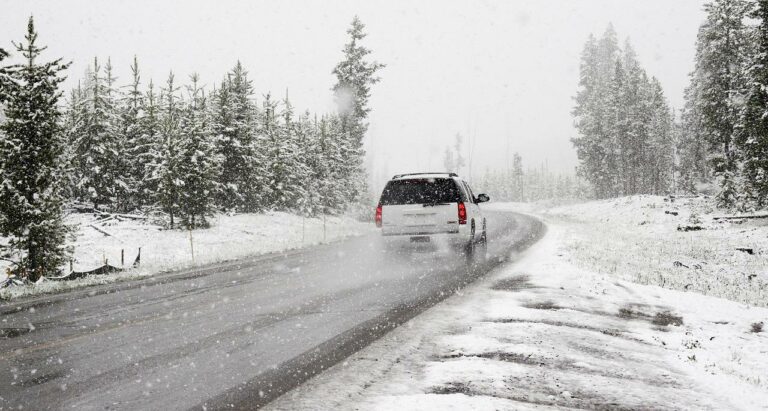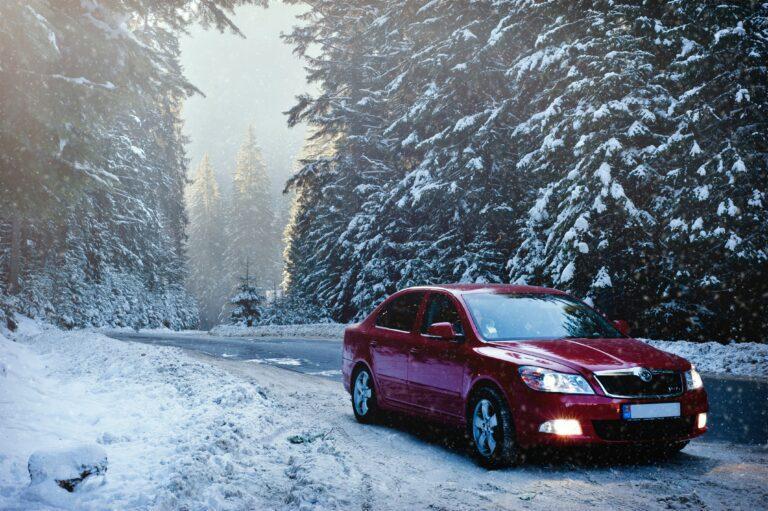How to prepare for long car journeys
It’s natural to be nervous about a long journey. To make sure everything goes smoothly, you need to prepare the car and its driver for the journey. You can use this article as a guide to make sure you don’t forget anything, and we’ve also got tips on interesting and unusual destinations to go to.
According to data obtained from the Czech Statistical Office, about half of Czechs take their own car on holiday during the year. Most often we go to the traditional Croatia, then to Slovakia, Italy or France. Long journeys represent a great physical and mental burden, the need to know the route in advance at least tentatively, and also to check the technical condition of the car and its operating fluids. Next, have your documents in order, study the regulations and much more. In summary, it is these 6 points:
What all needs to be done before the trip?
- Check the technical condition of the car
- Plan your route
- Check the validity of all documents
- Find out the regulations in the countries you will be driving through
- Ensure the lowest possible physical fatigue for the driver
- Observe the safety principles when driving
Prepare your car and mandatory equipment
A trivial thing like running out of coolant can turn into a big problem on the highway in a foreign country. To avoid potential problems, you only need to do a little before your trip:
- Top up operating fluids
Check the condition of the technical fluids: fuel, oil, coolant, brake fluid and washer fluid. Look for cloudy, darkened or floating water. Testers for analysing the quality of fluids in the car are also sold.
- Check car systems
- Check your tyres – make sure they are not damaged, worn and have the correct pressure. Tread depth in most countries must be no less than 1.6 mm. If fully loaded, it’s best to inflate them 10-15% above the recommended pressure before loading the car.
- Check the lights and brakes.
- Test the air conditioning for proper function – fresh, cool air keeps the driver alert and reduces the risk of fatigue.
- Check and replace the air filter if necessary.
- The wipers should wipe the surface of the glass along its entire length. Otherwise, a smudge can form on the glass, which makes it uncomfortable and reduces vision.
- You can tighten the visible bolts and nuts, both in the engine and on the wheels.
The above actions represent a cursory user check. If you want to be absolutely sure that your car is ready in every way (especially if it’s an older car), feel free to trust it to a garage , saying that you want a full check of the vehicle’s condition before a long journey.
- Take fuel to stock up
Not all countries have a dense network of petrol stations. This is especially true of the eastern countries. It’s not a bad idea to have a 10l canister of petrol or diesel ready. However, it is understandable that there is nowhere to put it due to lack of space.
Choose the right insurance
All drivers have compulsory liability insurance . It covers damage caused by driving on someone else’s property. To cover the damage to your own car, which logically occurs simultaneously too, there is accident insurance, and this is no longer compulsory. Without it, you pay for the damage to your car out of your own pocket. I think we can agree that not having collision insurance doesn’t pay. It is even worse abroad because repairs there are usually much more expensive than in the Czech Republic. Especially in the west.
It is therefore not a bad idea to take out accident insurance for the duration of your stay. Nowadays, insurance companies offer the option of short-term, for example monthly breakdown insurance.
As far as compulsory insurance is concerned, it is advisable to consider increasing the financial limits for different situations when travelling abroad.
Assistance services
Many drivers are unaware that breakdown insurance and compulsory liability insurance include basic assistance services. You can find the specific scope of these with your insurance company, as well as the option to extend them. Assistance services cover everything that can happen: a flat battery, a tyre change, topping up fluids, engine repairs (on site or in the workshop), a flat tank or slammed keys. The assistance service is able to provide all this even abroad.
Don’t forget to ask the police for a report for the insurance company in case of an accident! Never leave the scene of an accident without it.
Prepare your documents, medicines and food and drink
Check the expiry date on any documents you need to take with you:
- Driving licence
- ID card or passport
- Small Technical Licence and Green Card
- Proof of compulsory insurance + a copy in case of an accident
- European accident record form
- Proof of accident and travel insurance, if you have it
- Medical certificate for drivers over 60
Within the Schengen area, an ID card should be sufficient for travel. But not all of Europe is part of it. Take a look at this, which countries you do and don’t need a passport for .
Medications for nausea and diarrhea are important. Before you buy them, make sure they don’t cause distraction or increase fatigue. Definitely don’t administer such a drug to the driver. Likewise, equip yourself with an excess of drinking water. Being stuck in a traffic jam on a hot motorway could otherwise be not only very unpleasant, but even dangerous. Also have a list of all the things you want to take.
Plan your route
In this day and age of GPS and mobile navigation apps, route planning seems to be a thing of the past. However, at various points along the way, you may experience signal drops (not all countries have perfect mobile networks, especially in the mountains). That’s why it’s a good idea to have a good old European road atlas with you and plan your journey in advance.
Planning involves finding out if I can drive through the country without a vignette. You should also know, the correct place to stick the vignette . There are also fees and tolls and fuel prices. These vary from state to state and, as in our country, prices tend to be more favourable outside motorways and main roads (the price difference is much greater in Western Europe than here). Could be a potential sleepover spot.
Regulations and mandatory equipment
Regulations vary from country to country and so does the mandatory equipment. In Austria, for example, the number of reflective vests must be based on the number of people in the car. These seemingly small things can cost you hundreds of Euros due to the severe fines . Buy vests, a fire extinguisher (if you don’t have one), a first aid kit and check the rest of your equipment.
As far as the road regulations are concerned, you should especially study the maximum speed limits on the various types of road. Then you’ll want to know about the safe distance, the requirement to have daytime running lights, when you mustwear winter tyres and the tread depth of your tyres. Some countries have special features – for example, if you drive with glasses in Switzerland and Spain, you must have a spare pair. You should also expect that road signs will look different in different countries.
Rested and ready driver
The driver is the focal point of the whole journey. It’s all about him. And the arch enemy of the driver is distraction, which according to statistics is the most frequent cause of traffic accidents. This is especially a risk for young people who want to entertain themselves during their trip in any number of ways. This creates chaos in the car and distracts the driver, who often wants to be part of the action. While you can expect a driver to drive in an exemplary manner, the children are unlikely to want to indulge him. To put it bluntly, it’s up to the partner to keep them in line for the duration of the trip. Of course, there is no such thing as talking on the phone, eating or “tuning” the navigation while driving.
The second biggest enemy of the driver is fatigue. This mainly means sleeplessness and physical and mental exhaustion from work or other demanding activities. It is a good idea to go to bed early and get a good night’s sleep a few nights before your trip. Sleep will probably still tempt the driver while driving. It’s important to have the air conditioning on to keep the temperature in the car low, and a coffee or energising energy drink certainly doesn’t hurt. A certain disadvantage of air conditioning is that everyone prefers a different temperature. It is fairly well known that women prefer higher temperatures than men. You should be most careful with very young children – newborns should be covered even during the summer. If you plan to use the air conditioning, wrap the child in a sufficiently warm blanket. When it comes to energy drinks, don’t overdo the total amount of caffeine. The maximum daily dose should not exceed 5 – 6 cups of espresso. A car diffuser that includes a few drops of citrus-scented essential oil can also help keep the mind sharp.
Of course, the ideal is to have two drivers and rotate after four hours. If there is only one driver, he should not drive for more than four hours, better three. Then step out into the fresh air, stretch, refresh and continue. You can easily cut the long journey in half and sleep in a motel somewhere.
To avoid driving under time pressure, start three hours earlier than the navigation says you need to (plus breaks). I don’t think it’s necessary to say that it’s better to wait somewhere for two hours and go for a walk than to get stressed. That’s not what you go on holiday for, but so many people do.
You may never have heard of it, but the correct seating position can save lives in an accident. It allows you to react faster:
- The backrest is in a vertical position
- The distance between the steering wheel and the chest is 25 centimetres
- The seat is in such a position that the foot is freely bent when the pedal is depressed
- Proper hand-holding is at the 9th and 3rd hour when you think of the steering wheel as a dial.
- We’re gripping the steering wheel with all our fingers.
Secure the house before going on holiday
Finally, one bonus but crucial reminder: don’t forget to secure your home before you leave for your holiday. Read a separate comprehensive article with tips, what can be done to make your home as secure as possible .



